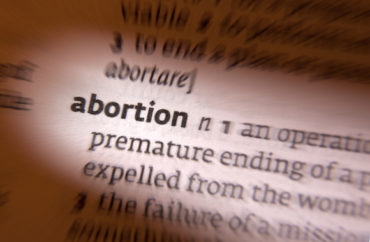
Even when they concede the pro-life point, many scientists are still pro-abortion
The College Fix reported this summer on the work of Steven Jacobs, an academic out of the University of Chicago who published groundbreaking research proving that most academic biologists believe that human lives begin at conception. Jacobs faced a titanic level of hostility and anger from his fellow academics for this research, yet his persistence paid off. Whatever else you can say about abortion, it is patently absurd at this point to claim that there is no scientific consensus on when human lives begin.
That apparently matters little when it comes to pro-choice politics. The Fix last week spoke with several biology professors from universities across the country, querying them about Jacobs’s research. The instructors were asked if they agreed with the vast majority of biology academics that human lives begin at the moment of conception. The answers were surprising: Two of the professors conceded the facts, that human beings begin at fertilization, yet they went on to equivocate, dismissing the issue as “not a scientific question…[but] a social question” and “two separate questions.”
This is the significant hurdle the pro-life movement faces at the academy: How to get people to value human life in and of itself. These days even the most rabidly pro-choice partisans are conceding that, yes, conception immediately results in the formation of a new, distinct human being; to deny this is to deny basic, rock-bottom, no-frills common scientific knowledge. Instead what we’re seeing is a kind of shifting of the goal posts: Yes, it’s a human, they’ll admit, but that doesn’t mean it’s not okay to kill it.
Ultimately that is the pertinent question: Whether we are going to extend human rights to all humans or merely some humans. One professor argued that a newly-created human being is not “a ‘human life’ in the sense of being formed and functioning.” The pro-life proposition is that human beings possess rights, including the right to life, independent of their form or function. The pro-choice belief is that it’s acceptable to kill certain human beings that have not reached sufficient benchmarks of development and capability. Having won the scientific battle, the pro-life movement is going to have to tackle this much more difficult front: How to convince people that unborn human beings are just as valuable as born ones.
MORE: Pro-life science, pro-choice politics: Professors speak out about abortion research
IMAGE: Steve Allen / Shutterstock.com





Please join the conversation about our stories on Facebook, Twitter, Instagram, Reddit, MeWe, Rumble, Gab, Minds and Gettr.